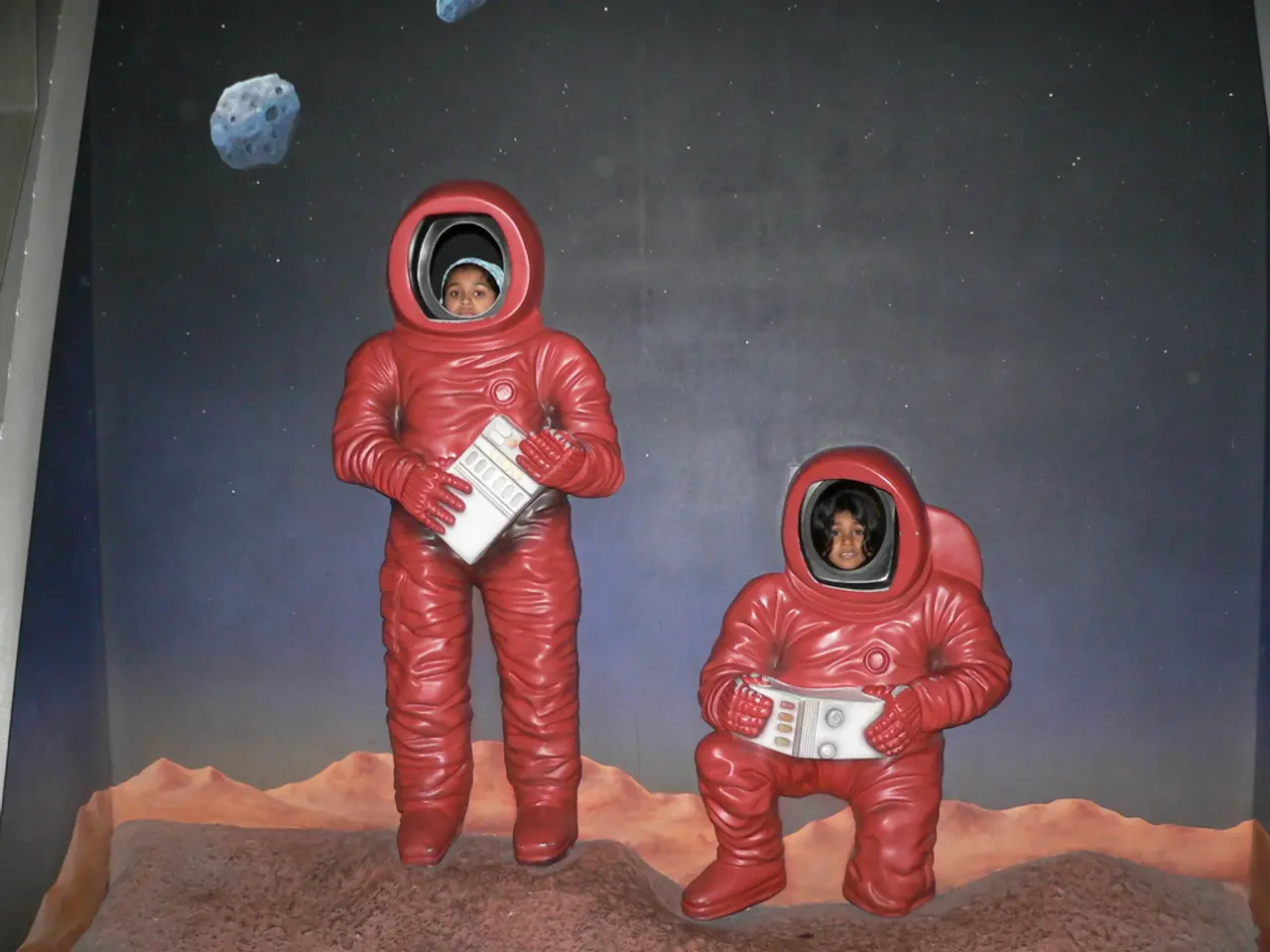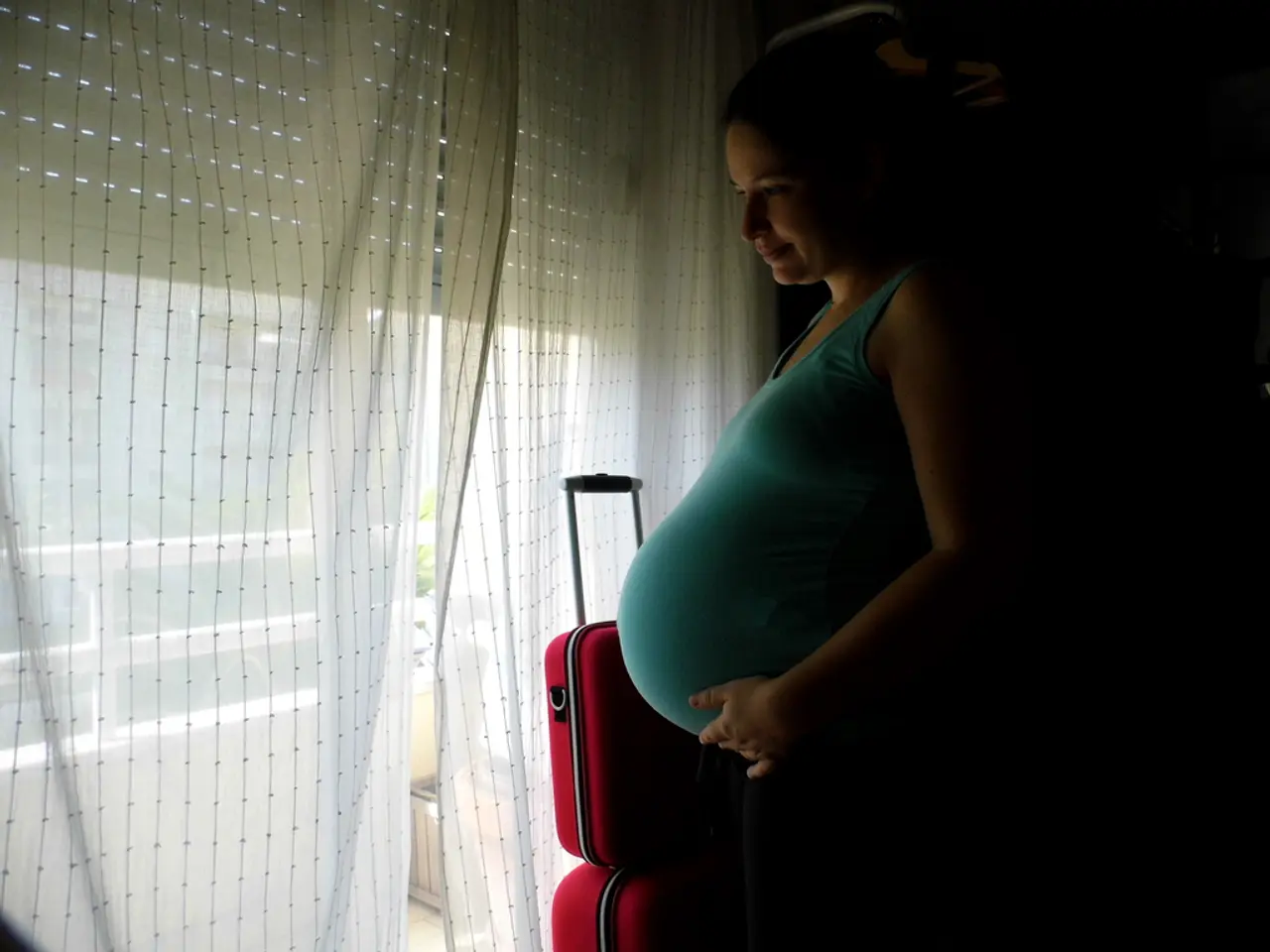Space-Tested Menstrual Cups Proven Successful: Potential Solution for Astronauts' Persistent Issue
In a groundbreaking development, menstrual cups have successfully passed their first spaceflight test, marking a significant step towards sustainable, safe, and comfortable menstrual health management for female astronauts on long-term space missions.
The challenge lies in managing menstruation in microgravity and resource-limited environments, such as missions to the Moon and Mars. Historically, menstruation has been overlooked in space medicine, primarily designed around male biology, creating gaps in healthcare options for women astronauts.
One of the main issues is the lack of sustainable and tested menstrual technologies that can endure spaceflight conditions without compromising material integrity or function. Menstrual hygiene in space must address containment, sanitation, and disposal with limited water and recycling constraints.
The AstroCup mission, a four-year research project (2022-2025), aimed to test commercially available menstrual cups under spaceflight conditions. The cups were subjected to 16g forces and microgravity simulation, and the results showed that they maintained structural integrity, leak-proof performance, and no degradation.
Menstrual cups offer a sustainable alternative to disposable products, reducing waste and simplifying logistics in space. Their durability in space conditions makes them promising for multi-year missions to the Moon and Mars.
The AstroCup experiment, launched over Portugal in October 2022, was the first documented test of menstrual cups under spaceflight conditions. The cups were encased in a compact steel capsule and weathered a nine-minute journey through the sky, enduring forces 16 times Earth's gravity, plunging temperatures, and falling pressure.
Lígia Fonseca Coelho, an astrobiologist at Cornell University, stated that the launch was not just a trial but the launch of a conversation about menstruation in space. The AstroCup project opens a dialogue about choice, equity, and health care in space, as space agencies prepare to send astronauts, many of them women, on years-long missions to the Moon and Mars.
The experiment was a proof of concept and a first step, with plans to study menstrual cups aboard the International Space Station for longer periods. The menstrual cups returned undamaged and leak-free after the rocket journey, confirming their viability as a sustainable, reusable menstrual device in space.
However, menstrual cups could face challenges in microgravity due to fluid flow and hygiene concerns. Ongoing research also includes studying IUDs (intrauterine devices) as another solution to manage menstruation in deep space missions, potentially offering another long-term option for menstrual suppression or control without ongoing hormonal intake.
The broader implication is a shift toward inclusive space medicine, ensuring that life-support systems and health care protocols evolve to serve female astronauts effectively, respecting their autonomy and biological needs. Future missions should incorporate testing and validation of menstrual health technologies within the payload to ensure efficacy under microgravity, radiation, and long-term use conditions.
The study points out that an astronaut involved in the Artemis program from 2025 to 2035 might face up to 20 years of menstrual suppression. Hormonal suppression isn't always medically advisable, especially for long-term space missions, as it carries known risks including blood clots and reduced bone density.
The conversation about menstruation in space is important as space agencies prepare to send astronauts on long-term missions. The AstroCup project is a significant step towards addressing this critical issue, ensuring equitable menstrual health care for female astronauts on these historic missions.
- The challenge in managing menstruation on long-term space missions, such as missions to the Moon and Mars, lies in adapting healthcare options to female astronauts' biological needs, as historically, menstruation has been overlooked in space medicine.
- The AstroCup mission, a four-year research project (2022-2025), tested commercially available menstrual cups under spaceflight conditions, aimed at providing a sustainable and safe solution for menstrual health management in space.
- The menstrual cups tested maintained structural integrity, leak-proof performance, and no degradation after being subjected to 16g forces and microgravity simulation, showcasing their potential for use in Earth's health-and-wellness and women's health.
- The reduction of waste and simplified logistics provided by menstrual cups makes them promising for multi-year missions, as they could offer a more environmentally friendly option in space technology and science.
- The AstroCup experiment, launched in October 2022, opened a dialogue about choice, equity, and health care in space, emphasizing the importance of research and development for sustainable menstrual health-and-wellness solutions in the tech and science community.
- Ongoing research includes studying IUDs as another solution to manage menstruation in deep space missions, potentially offering long-term options for menstrual suppression or control without ongoing hormonal intake in the field of women's health and science.




